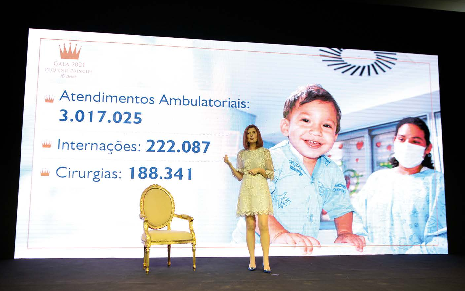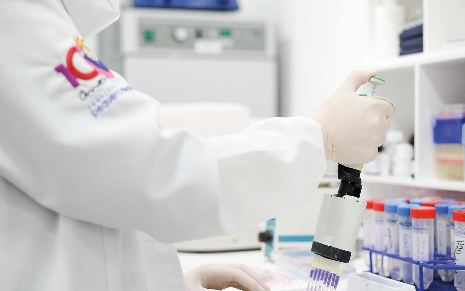Hospital provides healthcare for indigenous children and adolescents
The project is addressed to the urban village Kakané Porã and provides health monitoring in person and through teleconsultations
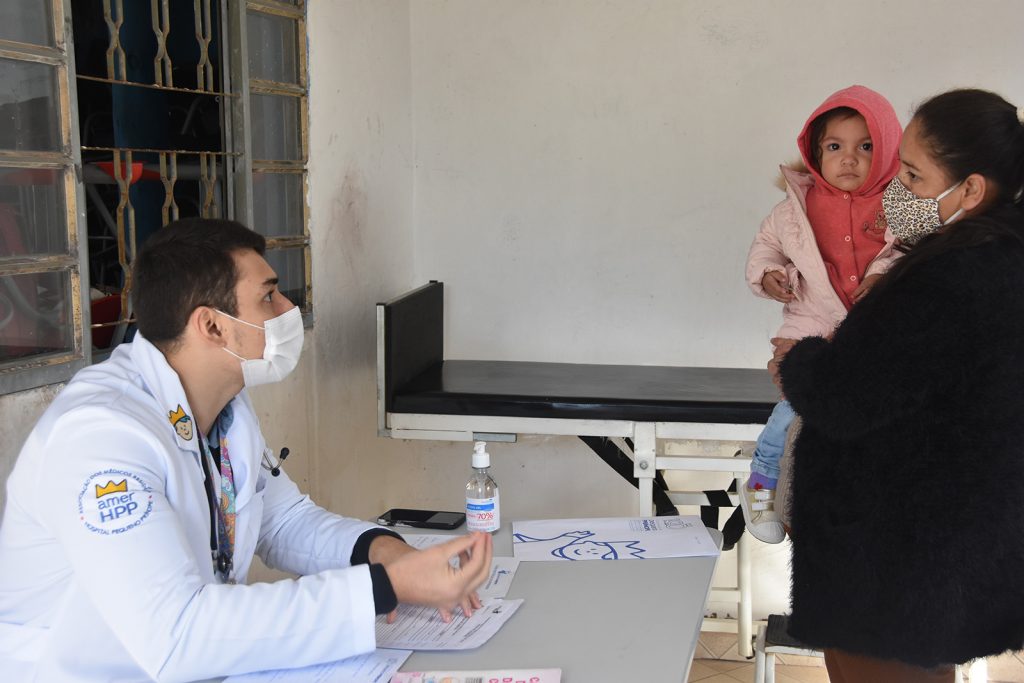
An initiative by the Pequeno Príncipe Hospital is providing more healthcare opportunities for indigenous children and adolescents who live in the Kakané Porã village, located in the extreme south of Curitiba (state of Paraná). The urban village counts on 53 children and adolescents who are included in the project. “Our goal is to extend good care to this population, bringing the Pequeno Príncipe way of being and doing to the village,” explains the institution’s executive director, Ety Cristina Forte Carneiro.
The project began in July and foresees eight face-to-face health meetings over a period of 12 months, with a multiprofessional team, for screening and medical consultations to evaluate the health conditions of each person and referral for exams and consultation with specialists at the Hospital, when necessary. In these meetings the vaccination cards are also being evaluated, for later organization of a joint effort, with support from the municipality’s health department, aiming at updating the vaccines of the village’s children and teenagers.
In between the face-to-face meetings, the indigenous families have the opportunity to receive remote assistance for immediate health needs, with the support of the TytoCare device and platform, and referrals to the emergency room of the Hospital in cases that require face-to-face consultations.
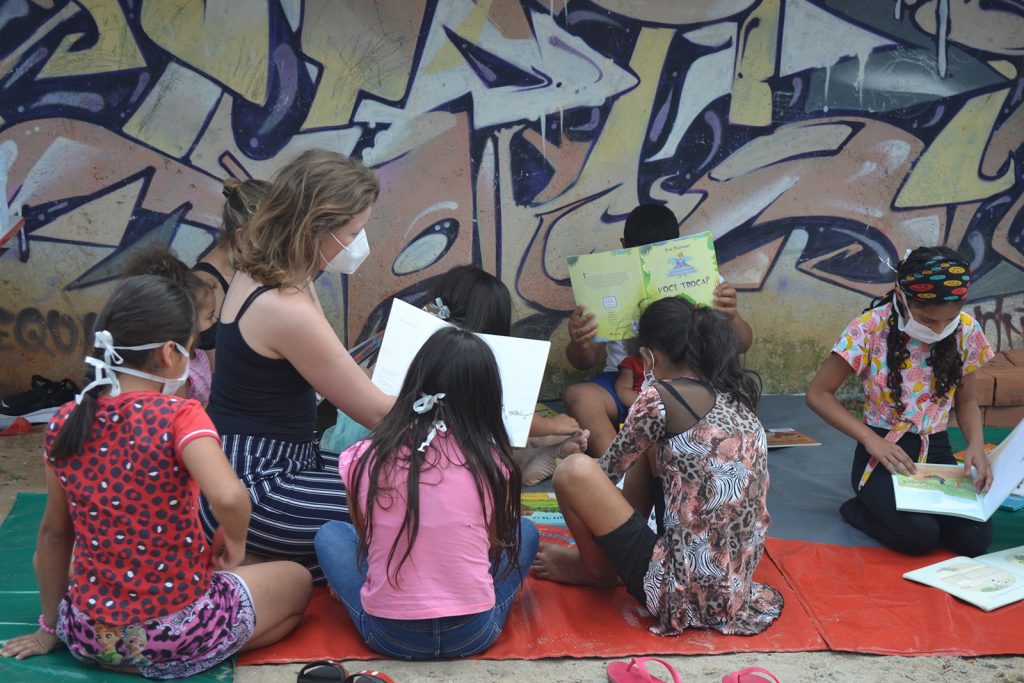
Besides the healthcare services, reading workshops are scheduled with a mobile library by the Education and Culture Sector; conversation rounds with family members and the Humanization and Psychology teams; and, also, volunteer activities. “We take the same model of the Hospital to the village, that is, to promote health, guaranteeing the children’s rights and seeking the families’ participation in the care,” emphasizes Ety.
The indigenous Indianara Morais Veloso, who is a nursing technician and lives in the village, is the point of contact between the community and the Hospital. “This assistance from Pequeno Príncipe is being very good. The mothers are finding it very interesting because many times they couldn’t take their children to the health unit. The TytoCare is another help for this, it is a new experience, I never imagined working with this. It is a device that does everything, even if the consultation is at a distance,” she declares.
Mother of four children, Denise Salvador de Almeida also approved the initiative. “We are finding out things that we didn’t even know they could have, like rhinitis. I never imagined that my children could be assisted to by the Pequeno Príncipe. What is being done here in the village is very good, it is differentiated, an exclusive assistance.”
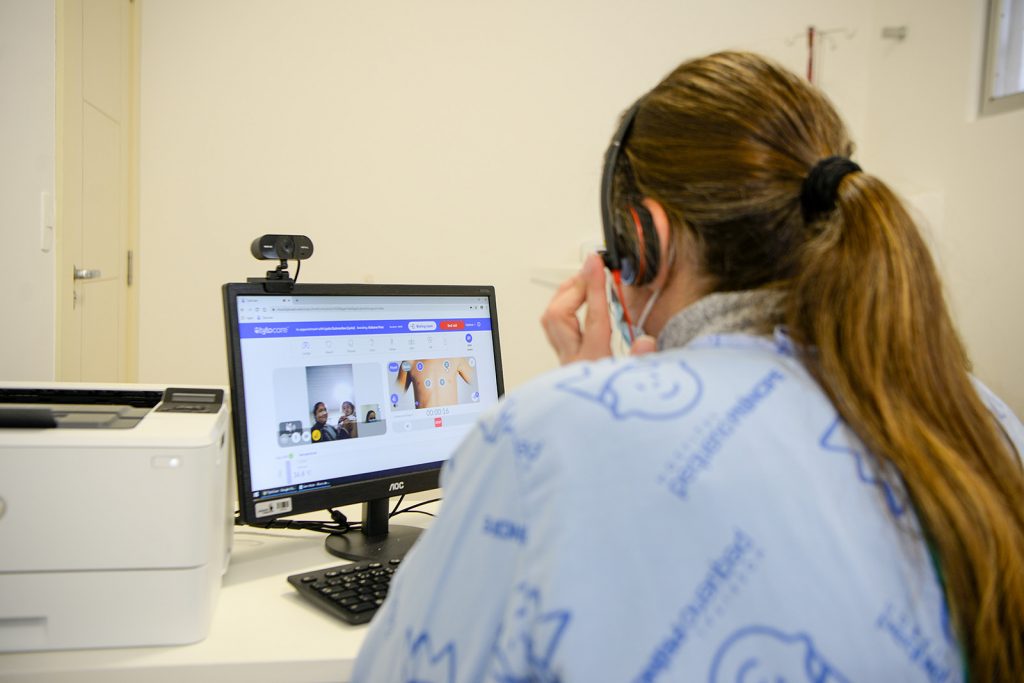
TytoCare
TytoCare is the first product brought to Brazil by Tuinda, a startup accelerated by the Pequeno Príncipe in partnership with the Sabará Children’s Hospital (state of São Paulo) and its research institute, Pensi. It is a portable technological device that allows physical exams and does the transmission of images for the doctor to analyze, evaluate and adopt the orientation and referrals according to each case.
Anyone can operate the device, capable of checking temperature, monitoring heart rate, obtaining high-definition images of the throat, performing ear examinations, and capturing sounds from the abdomen. The parameters are then sent to the doctor, who makes the diagnosis with reliable data and adopts the appropriate referral.
About the Kakané Porã village
The Kakané Porã village was created in 2008 to provide shelter for representatives of the Guarani and Caingangue ethnic groups from Rio Grande do Sul and Paraná countryside, and is considered the first urban village in the South of Brazil and the third in the country.
Located in the Campo de Santana district, in the extreme south of Curitiba, it occupies an area of 44 thousand square meters – nine thousand meters of which are woods, an area for cultivation and reforestation. Its name is the result of joining the word Kakané, of Caingangue origin, which means “fruit”, and the word Porã, of Guarani origin, which means “good”. The result, “Good Fruit”, represents the encounter between the ethnic groups, confidence in the future, and the multiplicity of the indigenous people.
Throughout its existence, the village also began to host representatives of the Xetá ethnic group and today has approximately 150 people from 42 families, representing the three indigenous ethnic groups present in Paraná territory.
Click on the video below to learn more about this initiative.
More
The Pequeno Príncipe Gala exceeds the fundraising goal
The event streamed by the Pequeno Príncipe’s YouTube channel shared touching stories of overcoming, celebrating science and life
Research investigates severe forms of COVID-19
Severity of the disease may be related to the presence of certain proteins in large quantities in humans


